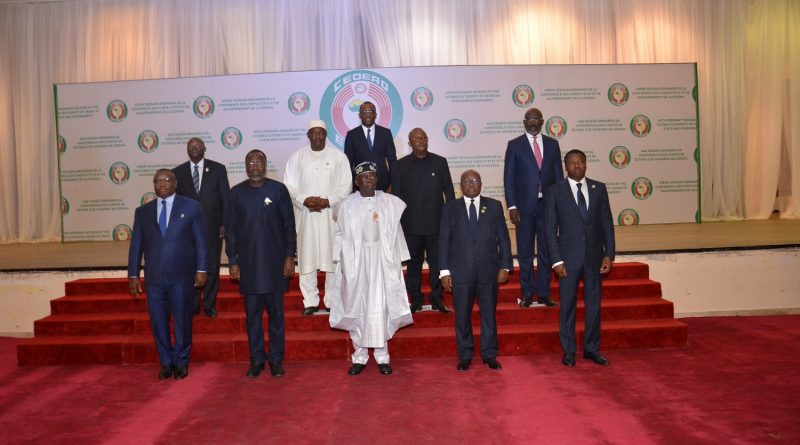West African Countries Withdraw from ECOWAS Amid Tensions
Yasmin Obeidallah
Staff Writer
On January 28, the West African countries of Burkina Faso, Mali, and Niger announced they would withdraw from the regional economic bloc known as the Economic Community of West African States (ECOWAS). In a joint statement, the three countries allege that the bloc has “moved away from the ideals of its founding fathers and Pan-Africanism,” after nearly 50 years in existence, according to The Associated Press. This decision comes after military coups took place in Mali in 2020 and 2021, in Burkina Faso in 2022, and in Niger in 2023. ECOWAS responded by suspending all three countries from the bloc and imposing heavy sanctions on Niger and Mali.
The three countries call these actions “illegal, illegitimate, inhumane and irresponsible” and accused the regional body of failing to support their fight against “terrorism and insecurity,” reports Al Jazeera. The nations’ respective juntas have stated that ECOWAS has come under the influence of foreign powers, “a threat to its member states and its populations whose happiness it is supposed to ensure.” Political tensions in West Africa have deepened since the three nations have formed The Alliance of Sahel States, a mutual defense pact, after severing military ties with France and other European nations and turning to Russia for support, says The Associated Press.
In recent years, rampant coups have erupted across the Sahel region, leading to several military-lead nations within the ECOWAS bloc. While attempts made by the regional body to reverse the coups have failed, the economic sanctions imposed on the nations have cut the three landlocked nations from major trading partners. This has led to increased economic hardship for millions of people. The land and air borders of Mali, Niger, and Burkina Faso were closed by ECOWAS and financial assets held by the nations in ECOWAS banks have been frozen, says The New York Times.
ECOWAS said in a statement that it had not been notified of the countries’ decision to quit the bloc. This decision has effectively severed the 49-year union of West Africa’s top political and regional authority. The 15-nation bloc was formed in 1975 to “promote economic integration” in member states, according to The Associated Press. The African Union (AU) has backed calls for combined efforts so that the “irreplaceable unity” of ECOWAS is preserved and African solidarity is strengthened. The Chairperson of the AU Commission, H.E. Moussa Faki Mahamat, has urged regional leaders to intensify dialogue between the ECOWAS leadership and the three countries, according to Reuters.
The military regimes across the Sahel are, in their view, restoring sovereignty over their territory and committed to eradicating the rise of militant groups that have spread across the region in recent decades. By doing so, the juntas are channeling the minimal resources available to the public into military campaigns in lieu of providing basic services to the people. According to the International Crisis Group, in the rural areas where most fighting takes place, residents are “increasingly exposed to abuses,” from government troops, militants, or other armed groups.
This extremist violence, as well as the wave of coups, reflects the widespread discontent towards governments in West Africa due to perceived corruption and ineptitude. According to Foreign Affairs, the military assistance of The United States and Europe has contributed to the region’s rise in violence by allowing aid programs to assist the regimes in prioritizing themselves at the expense of their societies. Western efforts to solve the Sahel crises must “shift their focus away from security assistance” and toward establishing stable governments that provide West Africans with a brighter future.
Image courtesy of ECOWAS

